In search of a Rare Resource: The 22nd Travelling Docudays UA Goes Sets Off Across Ukraine
In search of a Rare Resource: The 22nd Travelling Docudays UA Goes Sets Off Across Ukraine
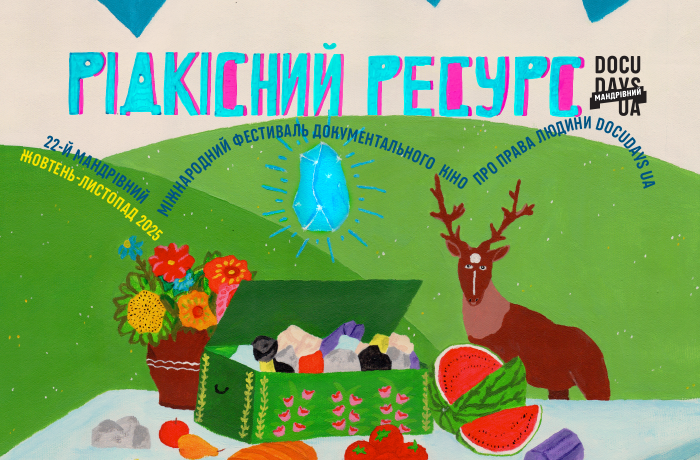
From the mountain villages of Ivano-Frankivsk Oblast and Zakarpattia to the frontline cities of Kharkiv, Zaporizhzhia, and Kherson Oblasts, just kilometers away from the line of contact—please welcome the Travelling Docudays UA International Human Rights Documentary Film Festival 2025!
The festival will begin its journey on 12 October in Kherson and will visit 20 regions of Ukraine with live and online events by the end of November. We will present 10 film stories selected from the 22nd Docudays UA programme in Kyiv and engage in conversations about our rarest resources, the power of cooperation in the struggle for a world of freedom and democracy, as well as human rights, empathy, and humanity as its foundation.The Travelling Festival is a continuation of the Docudays UA International Human Rights Documentary Film Festival, one of the largest film and human rights events in all of Eastern Europe, held in June in Kyiv. This year, 29 civic initiatives and organisations will become the festival’s partners in the regions. They will organise film screenings, discussions, and special events in youth and creative spaces, educational hubs, schools and universities, libraries, cultural centres, film clubs, and correctional facilities — for the general public and target audiences.
Theme and visual concept
The central theme of the 22nd Docudays UA is Rare Resource. Associatively, the title refers to the Ukraine–US agreement on rare earth metals, but above all, it is about Ukrainians and their inner strength to build a society based on participatory democracy, where citizens take direct part in decision-making and implementing change in their communities and the state.
We will talk about the struggle for a European future, unity, resistance to the enemy, and daily horizontal cooperation — for the sake of victory. What trials is democracy facing in the world today? What is needed to protect human rights and dignity in times of war? What holds up our resilience? And what can an individual do?
To reflect the distinctiveness of Ukrainian culture and highlight our unique identity, in the visual concept we turned to the aesthetics of folk naïve art and the work of artist Oleksandr Hrekhov. A tablecloth, a watermelon, a loaf of bread, a bouquet on the table — this is a declaration of love for our native land, its fertility, and the creative energy of the people who live here. And the chest of minerals is something that can become a symbol of success and security guarantees. The main festival trailer was also inspired by the natural wealth and beauty of Ukraine.
For the NGO Docudays team, one of the especially rare resources was Tetiana Kulyk, the coordinator of the Network Development Department. A person who put her big heart into the annual Travelling Festival and the daily work of the DOCU/CLUB Film Club Network, she helped others feel the strength within themselves to do important things and change the world around them for the better. She passed away suddenly on 29 July 2025.
“She loved her work and people deeply, was attentive, compassionate, and generous, always ready to help anyone in need, loved to teach, support, and inspire. The life of Docudays was her life. Tetiana was a very talented manager and brightened every event with motherly care for each participant,” says Svitlana Smal, Executive Director of NGO Docudays, about Tetiana.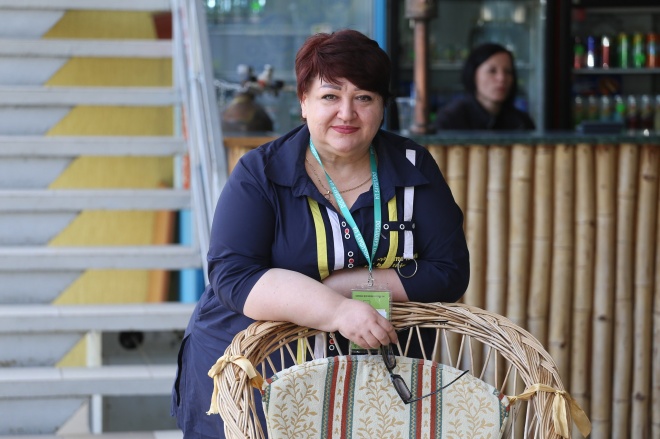
We dedicate the 22nd Travelling Docudays UA to the cherished memory of Tetiana Kulyk.
Film programme
From the competition and non-competition programmes of the 22nd Docudays UA, 10 documentary films from 11 countries were selected for the Travelling Festival: three of them were filmed in Ukraine or in co-production with international partners, and seven in Ireland, France, the Netherlands, the UK, Croatia, Italy, Slovenia, Qatar, Portugal, and Spain.
These films focus on our agency and the struggle for freedom, justice, and the preservation of human dignity even in the most difficult circumstances, sensitively reflecting on the themes of history and memory, exploring how a person’s choices shape their life, and how one individual can influence the lives of others. They resonate with the experiences and challenges we are going through, prompting deep reflection and meaningful human rights discussions.
The festival will open and begin the conversation about our rare resources with the film Sanatorium by Irish director Gar O’Rourke. This rather ironic film about the legendary therapeutic resort Kuyalnyk in the Odesa region reveals, through its vivid atmosphere, a certain portrait of the Ukrainian nation which continues to fight, dream, love, grieve, and plan life to the sound of air raid sirens. And it proves: people are our most valuable and rarest resource.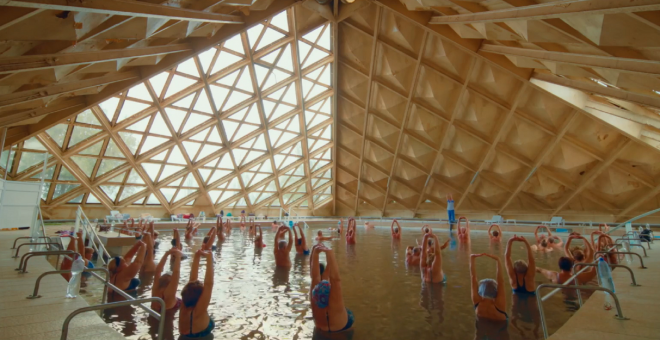 Photo: a still from Sanatorium film
Photo: a still from Sanatorium film
We will screen this film for the media and festival partners* on the first day of the Travelling Festival, 1 October. The following day at 1:30 p.m., we invite everyone to join a discussion around the film, a Q&A with fixer Serhii Solodko and the film’s protagonist Olena Kozhemiaka. And at 2:00 p.m., you’ll have the opportunity to join the RIGHTS NOW! discussion featuring human rights advocate Oleksandra Romantsova and political scientist Oleksii Haran and to look at society as a driving force for building democracy during wartime and bringing victory closer. The events will be held online on the festival’s website and Facebook page.
Another film from the main Rare Resource programme is A Land of Paper by French director Marion Boé. The film follows the lawyer Mélanie Le Verger, who has been providing legal assistance to unaccompanied immigrant minors for twenty years and who reminds us that the human being should always be in the centre of a democratic society.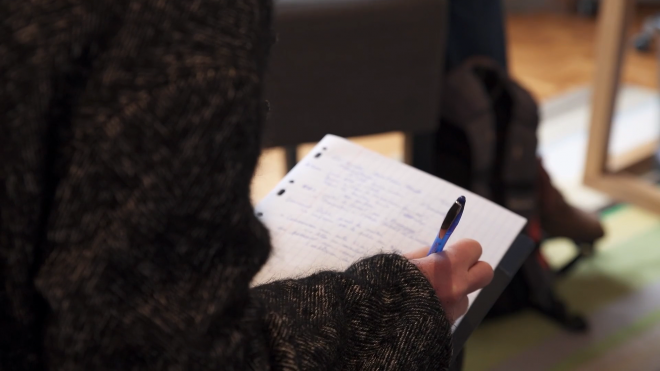
DOCU/WORLD will be represented at the Travelling Festival by a poignant and thoughtful documentary story close to Ukrainians by young Dutch director Maarten de Schutter, My Sweet Child. His mother, Martina, an activist for the rights of people with HIV and a feminist anthropologist, was killed in the Malaysian Boeing MH-17 shot down by russia. Now Maarten is trying to preserve her memory and move on. 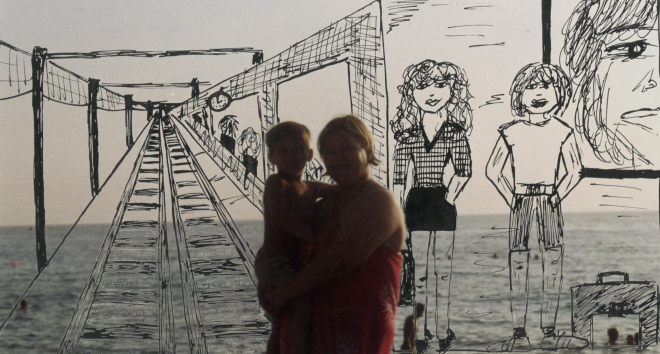 Photo: a still from My Sweet Child film
Photo: a still from My Sweet Child film
Another film that offers space for reflection on the nature of commemoration is Fiume O Morte! by Igor Bezinović from the DOCU/ART programme. This brilliant cinematic experiment explores and interprets the history of a city through the memory of its inhabitants, blending archival photos, theatrical reenactments, expert commentary, and carnivalesque absurdity.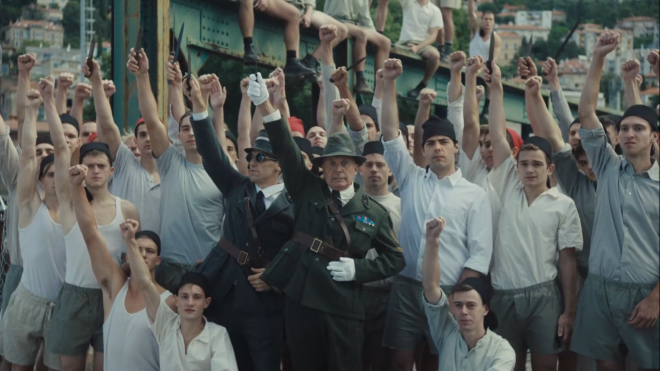
Among the award-winning films included in the DOCU/BEST programme, you will see the touching autobiographical film Glass, My Unfulfilled Life by Rogier Kappers from the Netherlands, who at the age of 52 decides to return to his childhood dream and learn to play music on glasses.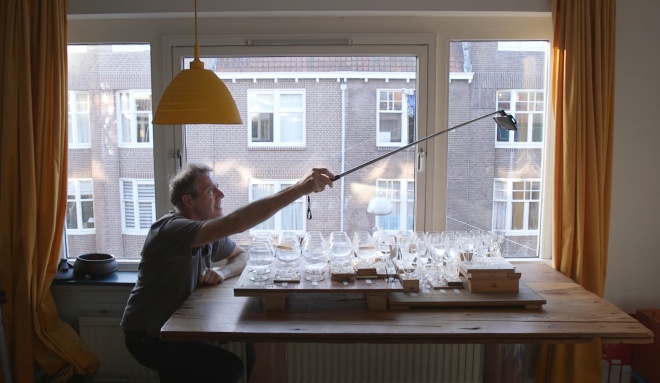 Photo: a still from Glass, My Unfulfilled Life film
Photo: a still from Glass, My Unfulfilled Life film
And My Sextortion Diary from the Special Events section, which Spanish director Patricia Franquesa filmed from the day her laptop with intimate photos was stolen until the moment she managed to stop the online harassment, is about how one can finally take their situation and one’s own life into one’s own hands.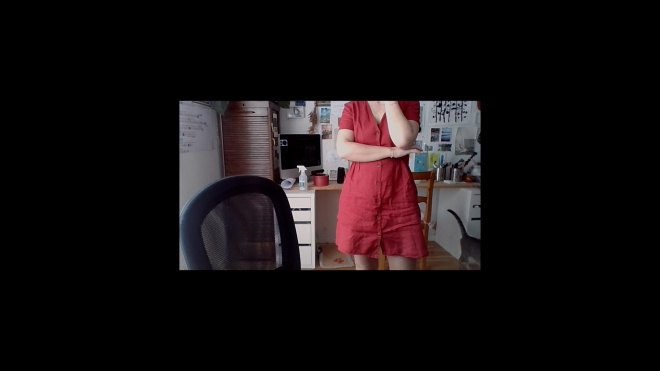
Among the shorts from the DOCU/SHORT and Docs4Teens programmes, we have two Ukrainian films: How I Spent My Summer Holidays? by Antonio Lukich, a tender yet at times painful film in which children share memories of their summer on 1 September.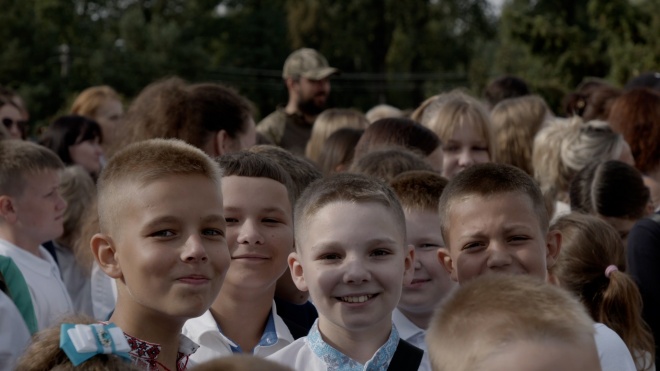 Photo: a still from How I Spent My Summer Holidays? film
Photo: a still from How I Spent My Summer Holidays? film
Where’s My Body Armor? by Daria Penkova, which makes us reflect on how deeply the war has changed our priorities and ourselves. This selection also includes international films close to our context.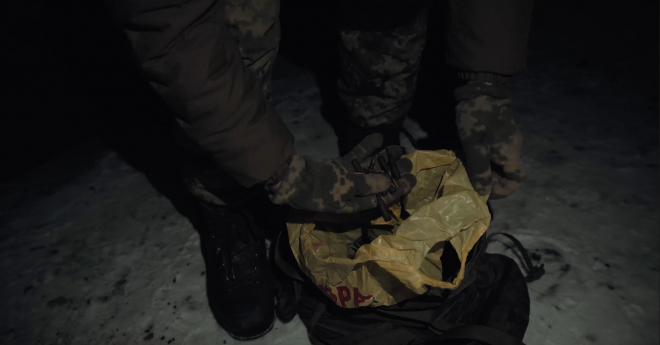 Photo: a still from Where's My Body Armor? film
Photo: a still from Where's My Body Armor? film
The Last Song from Kabul by Kevin Macdonald and Ruhi Hamid tells the story of music school students in Afghanistan who, despite all the upheavals in their country, hold on to their love for music.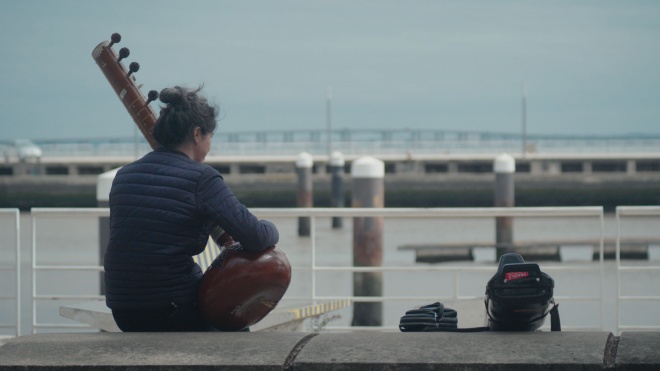 Photo: a still from The Last Song from Kabul film
Photo: a still from The Last Song from Kabul film
And Nathan Fagan’s animated work Inside, the Valley Sings shares the stories of three prisoners in the United States serving sentences in solitary confinement.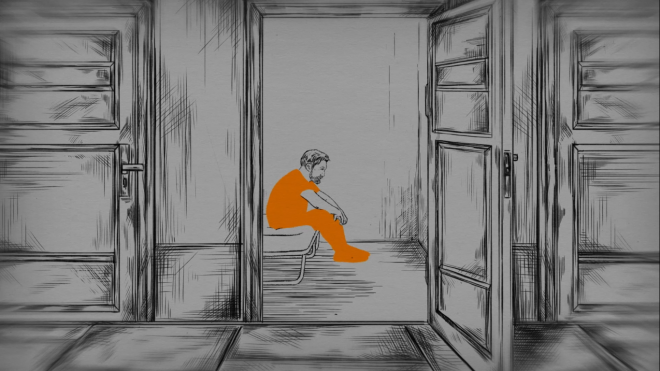
Despite the war, the wide geography, and the number of festival locations, we strive to preserve live contact. Directors, members of creative teams, and the protagonists of the films will join the events in person or via video call to share reflections, think about the power of documentary cinema, and search together for answers to complex human rights questions.
Human rights component
During the events of the RIGHTS NOW! Human Rights Programme, together with human rights advocates, civil society figures, activists, and experts from various fields, we will discuss difficult, sensitive, yet essential topics for these times: the protection of human rights, inclusion, and democratic values. In particular, in each region where the festival takes place this autumn, we will hold discussions dedicated to the practice of participatory democracy by Ukrainians, which refers to the involvement in the state’s life every day, not only during elections, and the ability to influence change.
This year, the Travelling Festival will be special, as it will have an ambassador, someone who embodies participatory democracy. The ambassador is the well-known journalist and human rights advocate, veteran, long-time festival moderator, and jury member of the special RIGHTS NOW! nomination at Docudays UA 2025, Maksym Butkevych. In the first days of russia’s full-scale invasion, Maksym voluntarily joined the Armed Forces of Ukraine, but by the summer of 2022 he was captured and spent 2 years and 4 months in captivity. Today, he is one of the most powerful voices of Ukrainian prisoners of war.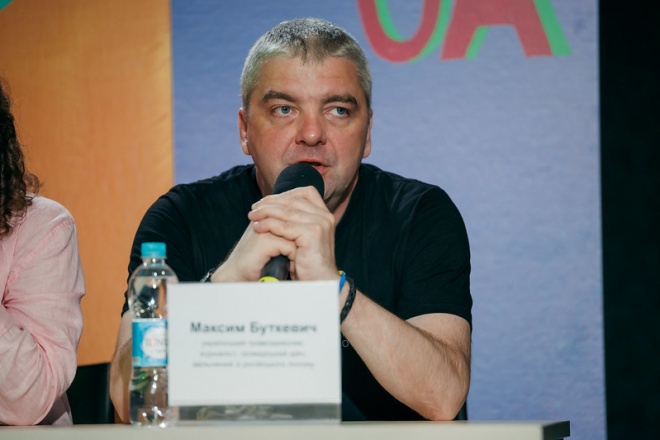
The team of the Travelling Festival has also identified the reintegration and rehabilitation of fellow citizens who have returned from russian captivity as one of the priority topics for discussion. The problem is nationwide; however, in each region it will have its own important emphasis, since the involvement of local authorities, civil society organizations, and the capacities of institutions working with the released prisoners differ everywhere. And while mechanisms of state support exist for military personnel, however imperfect they are, civilians still remain outside the system.
An important component of the RIGHTS NOW! programme will be the events of the nationwide information campaign on Sexual Violence Online: How to Protect Children, initiated and implemented by NGO Docudays together with the All-Ukrainian NGO Magnolia. This topic is also about our shared responsibility. As part of the campaign, we will hold a series of practical workshops with psychologists and lawyers, where we will explain how to counter grooming, sextortion, and other online threats, how to become a source of support for children, and how to make the digital space safer.
In the Living Library, we will traditionally focus on the value of human resources. This time its “books” will be people with extraordinary experiences, united by stories of overcoming the challenges of war, stigma, and discrimination, whose strength lies in resilience, the will to act despite everything, to bring positive change to society, and to defend their country.
Accessibility
We continue to develop accessibility so that everyone in Ukraine can watch high-quality and relevant human rights documentaries from around the world. All the films in this year’s programme have adapted subtitles that convey not only the characters’ lines but also other sounds such as music, footsteps, or the rustling of trees. In addition, the films Sanatorium, My Sweet Child, and Glass, My Unfulfilled Life will be available (including through the Earcatch app) with audio description, a special voice-over track describing actions, emotions, locations, and other important visual elements. These formats help viewers with visual and hearing impairments discover more meanings and details and immerse themselves more deeply in the atmosphere of the film.
Security aspects
For the fourth year in a row, the festival is taking place under the conditions of martial law. The safety of our viewers, guests, and teams is paramount. We plan and hold events with the level of threats and the current situation in the region (or community) in mind, and for offline screenings and discussions we choose only the venues that have shelters.
For security reasons, some information about events in the regions may remain non-public, so please follow the publications on the website and Facebook page of the Travelling Docudays UA and subscribe to the festival’s pages in your regions so as not to miss anything important. You can also find out details more directly from our coordinators.
To get more detailed information about the festival events, discuss potential partnerships, or arrange an interview, please contact Valeriia Sheremet, Communications Manager of the Travelling Docudays UA, at: [email protected].
*Registration for the online screening of the opening film Sanatorium (dir. Gar O’Rourke, Ukraine, Ireland, France, 2025, 90 min.) for media representatives and partner organizations is open via an online form up to and including 30 September. Look for subsequent screenings of the film in the Travelling Festival programmes in your regions.
Important! The Q&A on 2 October at 1:30 p.m. and the human rights discussion at 2:00 p.m. will be held live and freely accessible on the website and Facebook page of the Travelling Festival.
Festival organisers: Non-governmental Organisation “Docudays,” Ukrainian Helsinki Human Rights Union, Charity Organisation “Charity and Health Fund,” and NGO “Center for Modern Information Technology and Visual Arts.”
Media partners: Suspilne, Hromadske Radio, hromadske.ua, GURT, Vgoru.
The 22nd Travelling Docudays UA is held with the financial support of the European Union, the Embassy of Sweden in Ukraine, and International Media Support. The opinions, conclusions, or recommendations do not necessarily reflect the views of the European Union, the governments or charities of the member countries. Responsibility for the contents of the publication lies solely on its authors.
Docudays is a non-profit non-governmental organisation which realises cultural and educational projects on the intersection of cinema and human rights in Ukraine and abroad. These projects include the Docudays UA International Human Rights Documentary Film Festival and the Travelling Docudays UA International Human Rights Documentary Film Festival, the DOCU/CLUB Network of Human Rights Media Education Film Clubs, the RIGHTS NOW! Human Rights Programme, the DOCUSPACE Online Cinema, the DOCU/PRO Platform for the development of the Ukrainian film industry and the DOCU/CLASS Documentary Workshop, the DOCU/SYNTHESIS Interdisciplinary Art Programme, and the Ukraine War Archive, launched in cooperation with the INFOSCOPE initiative.












